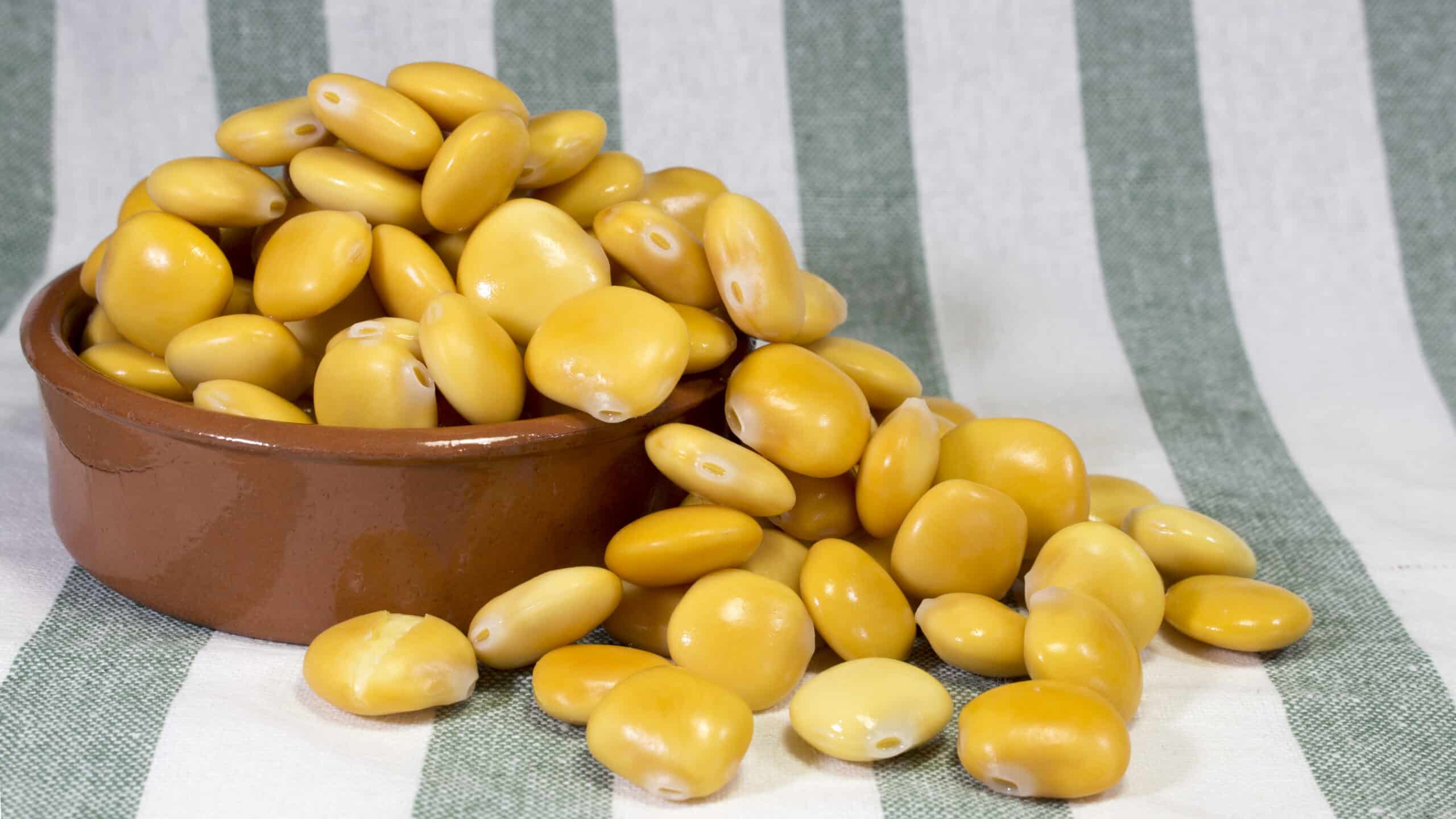What is a lupini bean?
Lupini beans (or lupin beans) are a popular legume grown in the Mediterranean basin and Latin America. While they’re extremely common in Europe, they’re less known in the States. But considering more recent accessibility in the keto diet and an environmental emphasis on plant-based diets, we expect to see a rise in the lupini bean market.
Along with diversifying our grocery list, lupini beans provide serious health benefits compared to other legumes, which are already pretty healthy.
The yellow beans have zero net carbs, little fat, and are higher in protein compared to soybeans, which are commonly recognized as the highest source of plant-based protein. Studies have also shown that a diet rich in fiber and protein from lupini beans can decrease cardiovascular and metabolic risks, including insulin sensitivity and high blood pressure.
What’s the best way to eat lupini beans?
Since lupini beans are naturally bitter, they are commonly rinsed and soaked repeatedly and then pickled for a healthy snack.
Cardiologist Joel Kahn, M.D., and board-certified surgeon Carrie Diulus, M.D., both incorporate the beans into their plant-based, keto diet, most commonly in their salads.
A typical meal for Kahn might look like “a plate of arugula, freshly sliced avocado, walnuts, lupini beans, hemp hearts, cubes of organic tofu, spices, tahini or nut butters, and a healthy coating of EVOO.”
According to Diulus, the emphasis with a plant-based keto salad is not on the fats. “There are plenty of healthy plant-based fats,” she said. “It’s the sources of protein…” that are harder to come by, which is why she adds lupini beans to her mix of olives, nuts, seeds, and whatever vegetables she might have.
Lupin is also commonly used as a wheat alternative in gluten-free flours and other gluten-free products, according to the U.S. Food and Drug Administration (FDA).
While the lupini beans show great promise as a healthy source of nutrients, people with peanut allergies should be cautious of the ingredient since it’s in the same plant family as peanuts.
Whether you’ve just started the keto diet or you’re just trying to get a little more protein, lupini beans should definitely be on your radar.
1 cup of raw lupini beans contains 668 calories, 18 grams of fat, 2.1 grams of saturated fat, 4.4 grams of polyunsaturated fat, 7 grams of monounsaturated fats, zero cholesterol, 27 mgs of sodium, 1,823 mgs of potassium, 73 grams of carbohydrates, 34 grams of dietary fiber, 65 grams of protein, 14% of the daily recommended value of vitamin C, 31% of the DRV of calcium, 43% of the DRV for iron, 30% of the DRV of vitamin B6, and 89% of the daily recommended value of magnesium, according to the USDA.




